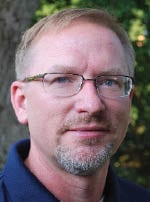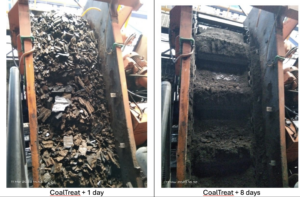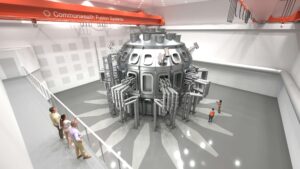As we announce Top Plant award winners in the nuclear category this month, the global nuclear power industry is at an unusual point in its history: mired in controversy and caution, yet championed by an unexpected group of new fans.
Even while many are rightfully concerned about avoiding another disaster on the scale of the Fukushima nuclear accident, others see nuclear power as the world’s best available control technology for addressing climate change concerns. In fact, that was a major theme of a recently released movie.
Pandora’s Promise
Pandora’s Promise consists largely of interviews with a handful of individuals who have shifted from holding anti-nuclear views to pro-nuclear ones, essentially because they now see climate change resulting from fossil fuel use as a larger threat than the potential threat of any danger resulting from carbon-free nuclear power generation. I saw the movie, and though it is a welcome counterbalance to more typical anti-nuclear movies, it, too, suffers from a one-sided message that, for example, minimizes the costs involved and long-term waste storage challenges.
Ironically, just when many “traditional” environmentalists are backing nuclear as a climate-saving generation technology, it appears that economics (which are chilling for existing and future U.S. plants), safety scandals (covered in Associate Editor Sonal Patel’s special report on South Korea in this issue, as well as previous articles on safety lapses involving Japanese reactors), and power policies (most recently, in Germany and France) are pushing in the opposite direction.
The Sole-Source Promise
While some enviros are bullish on nuclear power, others remain firmly opposed to fission. The end of August brought a press release to my inbox from members of the European Delegates’ Assembly of EUROSOLAR, who had adopted and signed a resolution calling not just for “a European renewable energy framework” but also a policy focused on “achieving an energy future entirely founded on renewable energy sources” consisting of “wind, sun and biomass.” Aside from the fact that one should always take statements from industry groups with a large grain of salt, the final statement—“The EU must end its practice of exporting obsolete fossil and nuclear technologies”—struck me as particularly impractical. Unlike automobiles overtaking horse and buggy, fossil and nuclear power generation technologies are far from obsolete and are still needed to back up intermittent renewable generation in most places (the press release made no mention of energy storage or even baseload geothermal energy).
Despite what the most strident lobbyists for each generation fuel and technology would have the public believe, no single fuel can solve all of our global energy problems, and no energy technology is completely environmentally benign. A balanced generation portfolio, on the other hand, can both optimize benefits and mitigate risks. What constitutes “balance” will vary over time and by location. Today, for example, the balance for very small islands might consist of wind and solar plus energy storage, with diesel generators for emergency backup.
Avoid Broken Eggs
President Obama has been maligned by all sides for his “all of the above” comments about energy sources, and to some, the administration’s policy looks like “none of the above” for power generation (except maybe natural gas). However, there is merit to the concept, and the president’s energy slogan is one long used by the financial services industry. When it comes to retirement savings, you shouldn’t put all your eggs in one basket, especially not in the stock of a single industry or company. Similarly, the history of the power industry shows that grids that are overly reliant upon a single fuel can be especially vulnerable when disaster strikes, as Japan has learned.
Just as we all should have a somewhat diversified retirement portfolio—with holdings in different proportions based upon our age as well as other personal factors—so too, most nations and regions benefit when they have a diversified generation fleet. That’s why even in my windy and sunny part of New Mexico, neighbors with solar panels on their property remain connected to a grid fed by a mix of fuels. ■
— Gail Reitenbach, PhD is editor of POWER. Follow her on Twitter @GailReit and the editorial team @POWERmagazine.











